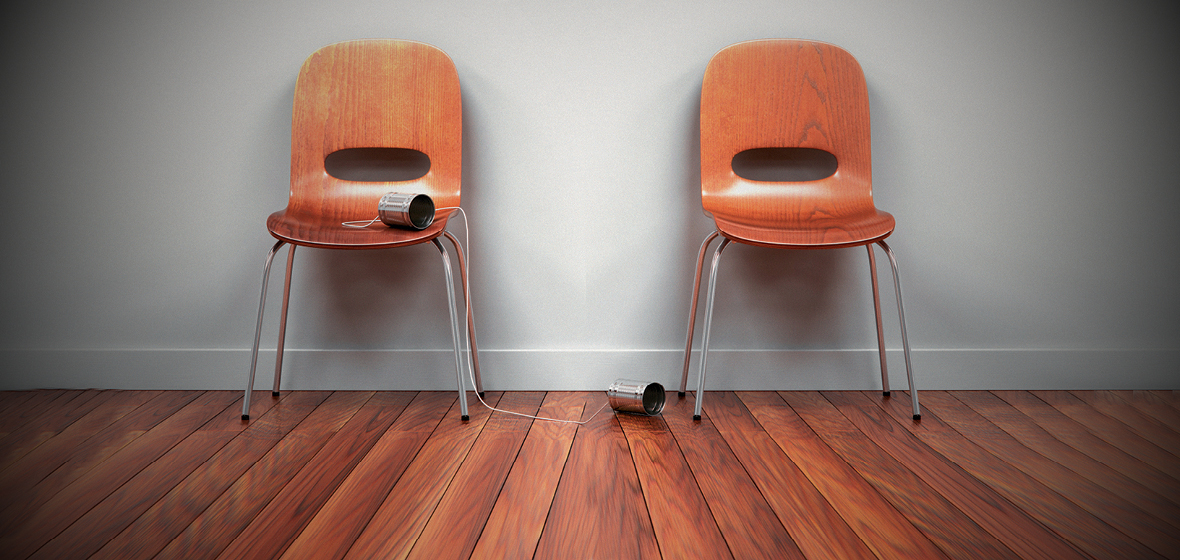There are still instances where alternative dispute resolution has not even been contemplated months after civil proceedings have begun.
Using mediation can help create better relationships between solicitors and clients, leading to happier clients and solicitors – and better outcomes overall.
Using mediation and other alternative methods to solve disputes is an increasingly used instrument in the legal toolkit. According to solicitor and accredited mediator John McDermott of Sydney-based McDermott & Associates, resolving disputes through mediation is part and parcel of today’s world.
“People don’t want complex, lengthy, expensive litigation. They want solutions,” says McDermott.
The Family Law Settlement Service (FLSS), a service the Law Society of NSW provides, is a case in point. The mediation program is designed to help solicitors resolve family disputes already before the courts. The scheme, a joint initiative of the Law Society, the Family Law Courts and the NSW Bar Association, was created to avoid the costs, uncertainty and delays of having a dispute determined at a final hearing.
The program gives solicitors access to a panel of mediators, who are also family law solicitors and barristers, allowing them to take on family property and parenting cases without delays. The program’s success rate – with more than 62 per cent of the matters it has handled in the past six months being either fully or partially settled – helps illustrate why more people should be turning to alternative dispute resolution, or ADR.
The broad benefits of ADR
There are many oft-noted positive aspects of mediation, including shorter timeframes, lower costs, more control over dispute outcomes by the involved parties, finality of agreements, privacy, and freeing up court time – all of which are beneficial to clients and taxpayers.
And, contrary to many common concerns within the legal profession, mediation and other forms of ADR also have an upside for the legal profession.
“Mediation is in the legal profession’s interest,” says McDermott. “It improves the image of the legal profession as well as the relationship between the solicitor and the client.”
McDermott believes mediation can help dispel negative perceptions of lawyers. It allows them to offer clients a quicker, cheaper, and often more positive experience in resolving disputes. This, he says, is becoming more important in light of new challenges to the practice of law, many of which spring from the impact of technology and changing expectations around billing.
Using mediation can help create better relationships between solicitors and clients, McDermott says, leading to happier clients and happier solicitors. “You can often get a much better result for your client.”
The benefits of settling differences outside the courtroom are broadly accepted, with the vast majority of civil cases reaching final settlement outside the courtroom. Just 3 to 5 per cent of civil cases go to a final hearing, according to the NSW Department of Justice.
However, according to solicitor and accredited mediator John Vohralik of Vohralik Mediation in Sydney, there is still room for improvement.
“There are still instances where some form of alternative dispute resolution has not even been contemplated many months after civil proceedings have commenced,” he says.
Vohralik believes the use of ADR and mediation will continue to grow, especially as younger CEOs and executives seem to be moving away from litigation to solve disputes.
“To stay competitive, solicitors will need to focus on this area, especially younger solicitors,” he says, adding that growing developments in technology, including online dispute resolution, will further increase the use of mediation.
Mediation and arbitration will also continue to grow because, adds Vohralik, judges are now much more aware of these options as being effective ways to resolve disputes. And, when it comes down to it, money talks.
“The cost of litigation often gets in the way of sensible resolution,” Vohralik says. “Costs, delays, unpredictable results, risks, destruction of commercial relationships, wasted executive time, and the desire to control process and resolution options are important considerations for disputants. These are some of the main factors driving early resolution of disputes using ADR techniques, especially mediation.”
McDermott also says he would like to see greater use of alternative dispute solutions. This could include more frequent use of mediation and ADR clauses in documentation, and ensuring that solicitors understand it is in their best interests, personally and professionally, to recommend mediation when relevant.
“Ideally, all commercial agreements we prepare would have mediation or arbitration as the primary method of resolution, rather than an alternative,” says McDermott.
 JOHN VOHRALIK, Vohralik Mediation
JOHN VOHRALIK, Vohralik Mediation
Room for improvement
The benefits of mediation and ADR are not in question. However, for some, the when and how of their effectiveness is open to debate.
Along with the potential for perceived conflict of interest in relation to mediation (after all, suggesting ADR to a client could result in a loss of legal fees if the matter does not go to court), other challenges include the tension between traditional legal training, which is adversarial-based, and the skills needed for effective mediation: conciliation and negotiation.
Timing is another consideration, says Rosemary Howell, an accredited mediator and chairman of professional consulting firm Strategic Action and visiting professorial fellow at UNSW. Timeliness, she says, is critical for the most effective mediation, with early intervention key to solving many disputes and allowing business relationships to survive.
“In more than 30 years of practice I have found that many disputes are between people working in business together – and often they are just a symptom of a larger problem,” Howell says.
“Reaching a settlement doesn’t address the underlying issues. Some lawyers are so attached to reaching a settlement that provides a degree of vindication [for their client] that they don’t appreciate the value of early intervention as a wise commercial proposition.”
Many lawyers who regularly work in mediation provide what they feel are good examples of successful mediation, says Howell, even if they entail lengthy, acrimonious battles between two or more parties that are only resolved after involving teams of lawyers and mediators – and a lot of money. So although the option to eventually pursue ADR may be eliminating the added hassle and costs of taking the matter to court, plenty of damage – financial and emotional – has already been done before the mediation begins.
 JOHN MCDERMOTT, McDermott & Associates
JOHN MCDERMOTT, McDermott & Associates
Mediation improves the image of the legal profession as well as the relationship between the solicitor and the client.
Howell says these cases often reflect the background of many lawyers, who have been trained to act tactically rather than strategically – an approach which is common in more traditional legal training.
“Lawyers are trained to see most disputes as a fight over money or contractual obligations, rather than addressing the underlying issues of the parties. In most cases, litigation won’t solve these,” Howell says. “Lawyers need to be trained to explore whether the dispute is actually a symptom of a deeper problem.”
Like McDermott and Vohralik, Howell is optimistic about the future of mediation and ADR, which is partially a result of her teaching duties with UNSW law students. Members of the next generation of lawyers, she says, consider mediation and dispute resolution to be a normal avenue for settling disputes, adding that the ADR course she teaches at UNSW is the second most popular elective. “These young ones get it,” says Howell. “They look at all the options and consider mediation as a no-brainer.”
McDermott agrees that the times are changing, and that people have less patience for drawn-out, lengthy processes and are now demanding solutions – and fast. “People are getting their medical advice from the web. When you buy a new appliance, the instruction manual is now online,” he says. “It’s indicative of a new attitude.”
Want to use mediation? The Law Society’s new website has resources on mediation. Visit lawsociety.com.au/public/know-your-rights/mediation/how-apply-and-cost-mediation.
Top 10 reasons why mediation works for clients
- The parties and the mediator control the process
- There is no requirement to give evidence and parties and their witnesses are not subject to cross-examination
- Mediation is far cheaper than a court hearing or arbitration
- The mediation process is efficient and can be organised within a few days of appointment of a mediator
- The settlement process is informal
- The parties and mediator control the duration of the mediation and make important decisions to manage and seek to resolve the dispute
- No court- or tribunal-imposed solution or judgment is forced upon the parties – the parties negotiate and find their own solution
- Particularly in matters where continuing personal or business relationships are involved, solutions often can be negotiated in mediation which enhance or vary business or personal relationships
- Where parties reach their own solution, unpredictable results or judgments do not arise
- Clients have ownership of the dispute and how to resolve it
Source: vohralikmediation.com
Top 10 reasons why lawyers won’t mediate
- They will appear weak to the other side and signal that they do not have a strong case
- They have a slam-dunk case and there is no point in mediating to get less than what they want
- They don’t want to show their case to the other side before trial
- The case is just too large and complex to mediate
- The parties (and even the lawyers) are too emotionally involved to sit down together and mediate
- A day of mediation is just a waste of time and money
- The case will not settle because the other side is unreasonable
- The client doesn’t want to mediate and wants a trial
- They have to spend time preparing for trial where they have the best chance of obtaining a large award or good settlement for the client, while maximising billable hours – so they don’t have time to mediate the case, too
- They feel they don’t need a mediator as they can resolve the matter better, and save time and money




